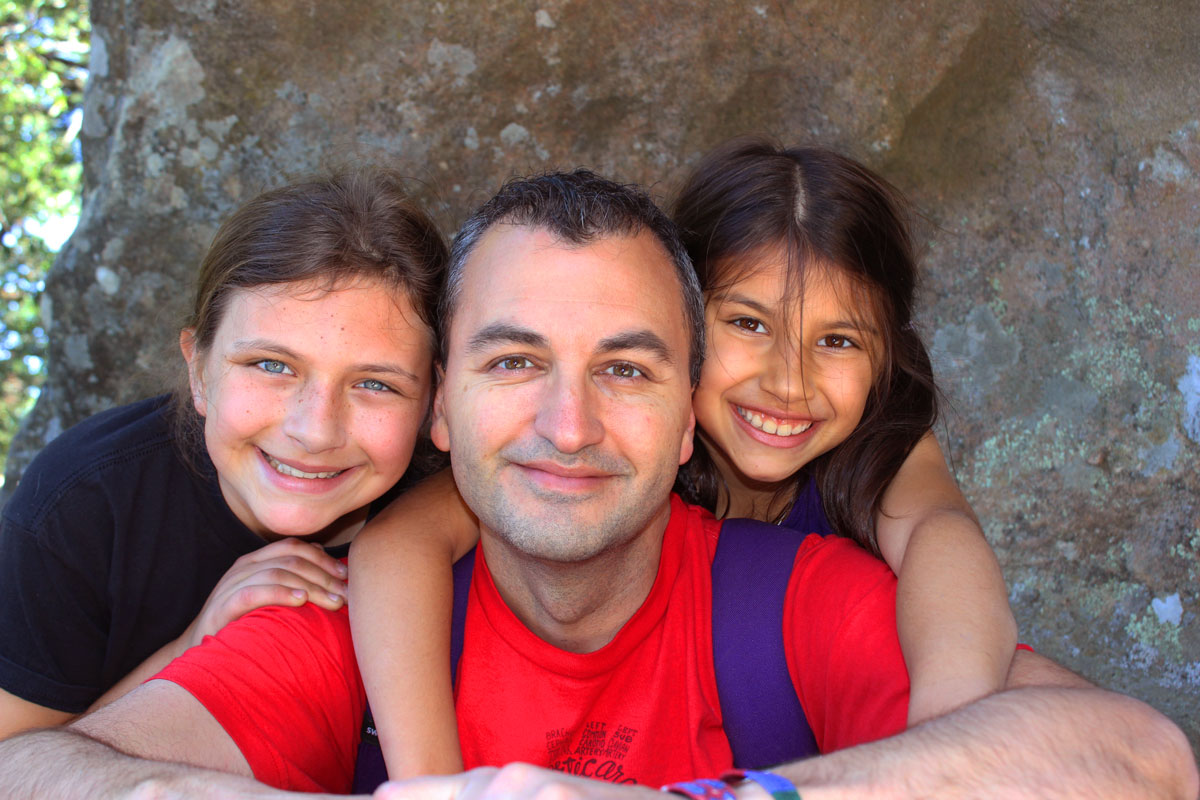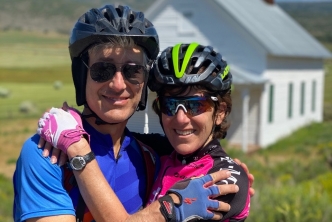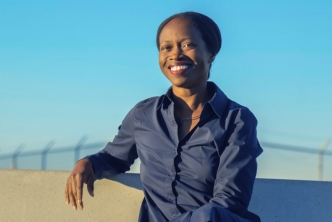
In conversation with Poncho Guevara - Sacred Heart Community Service
We invite you to be inspired by our Leader Voices series. Here, Poncho Guevara, Executive Director at Sacred Heart Community Service, talks about his vision for a just recovery in Silicon Valley and what it's going to take to get there.
Sacred Heart Community Service is an anti-poverty organization that addresses the root causes and consequences of poverty. It was featured in the Silicon Valley Give Lists released last fall, in partnership with Fidelity Charitable.
Tell us a bit about the work you do at Sacred Heart Community Service.
Sacred Heart Community Service was founded in 1964. We’re a grassroots anti-poverty organization. We help provide stability, support, and opportunity for families through food, clothing, emergency financial assistance, and more. We also support them in navigating systems like accessing unemployment, public benefits, youth education... We have networks of promotoras [community health workers] creating support systems for our members. We also do a lot of work around grassroots organizing, working around economic and racial justice, immigrant rights, affordable housing, tenant rights… tackling issues of inequities in our county and our community.
What are some of the challenges you’ve had to face with COVID-19, and ways your organization has adapted?
Historically, we've served 55,000 to 65,000 people a year, which in and of itself is an indictment of the kind of economic inequality that exists in our valley. A pivot COVID-19 forced upon us was reimagining our operations with fewer volunteers. We usually rely on 10,000 to 12,000 volunteers a year to provide services. We’re now spending more money on staffing and have had to adjust the way we deliver our programs.
Another huge organizational pivot we had to make was being able to meet the financial needs in our community. With so many people working as essential workers, or in service industries like hospitality which entirely shut down, and so many undocumented people who weren’t eligible for public relief, needs were tremendous. We provided a first round of financial support through the Emergency Assistance Network that had been set up after the Great Recession, but we quickly realized we would need to expand our reach. We also wanted to hear from the community about how they wanted the resources to be distributed, by whom, and in which way. The feedback we received was the need to work more closely with trusted organizations in their communities. So we created a network of over 70 organizations to make sure we could reach as many people as possible in harder-to-reach and vulnerable communities. To date we’ve served 11,000 households and distributed about $21 million. We’re launching the third phase of this financial assistance next week.
How does community input guide your work, in this moment of urgent needs, and how is that input also guiding the way you are thinking of recovery?
First of all, we don’t look at our folks as “clients” or people who are passive recipients of services we deliver. We refer to them as constituents, active participants, members receiving but also giving back to this community.
In this moment of tremendous need, we’ve been serving more and more people, including some of the families that we had graduated into stability who are coming back and needing some help. So we’re focused on creating support systems for them, working with families on mindfulness and resilience, helping them navigate the school system and deal with all the things that are being thrown at them.
But we are also focusing a lot of our energy on ways we can advocate for more resources and support for them long term, working on systems change. The key lesson COVID-19 has reinforced for us is that you have to listen deeply to the communities and constituents that are directly impacted and make sure that they're at the center of the decision-making process, especially as you look at what recovery should look like.
What is your vision for the future, and what do you think it’s going to take to get there?
Two major topics have been occupying a lot of our time and brain space. The racial reckoning in this country is one. The anger and frustration in the community is palpable. The question is how to take that energy and turn it into something that is going to contribute to making systemic change happen in the community. We need to look at how our institutions treat Black folks and people of color, how we think of investing in organizations that are serving such communities, and how we wrestle with these challenges in our own organizations. The underinvestment in organizations led by people of color is indicative of this "blind spot", and we need to collectively make sure that we start to include a racial equity lens more systematically in how we - and philanthropic institutions - invest resources in the community.
There is also an imperative to start moving resources from policing to prevention, to put resources into organizations like ours that are trying to bring the community together, so that these problems don’t happen in the first place. We are going to be helping advance these conversations in public policy forums and other spaces through the course of this year, both at the city and the county level, so we can reimagine community safety.
The other major area of intersection has to do with a just recovery for immigrants. We must look at how some of the folks in our society have been systematically erased, when they were prevented from access to resources from federal disaster relief. Undocumented families, refugees, and other communities participating in the same economic system as all of us weren’t able to access unemployment insurance for example. Families are struggling, and are being displaced. Some don’t have formal leases, and are not connected to any legal resources. Our community must ask ourselves how do we reach out to them? How do we build a better and stronger safety net that’s able to incorporate the needs, priorities, and values of these communities? How can we make sure these communities are the ones guiding and leading and pushing these efforts and holding public officials and institutions, including our own, accountable?
What’s giving you hope as you look toward the future?
The community. I have met families who have just shown such incredible resilience, and witnessed people who have never asked for help before come through our doors to receive assistance. Every person we work with can be an instrument for change, can fight for change and push for more resources and policies that protect them. I feel really grateful to see that power and that resilience from so many in our community to make that happen. So I am hopeful.


